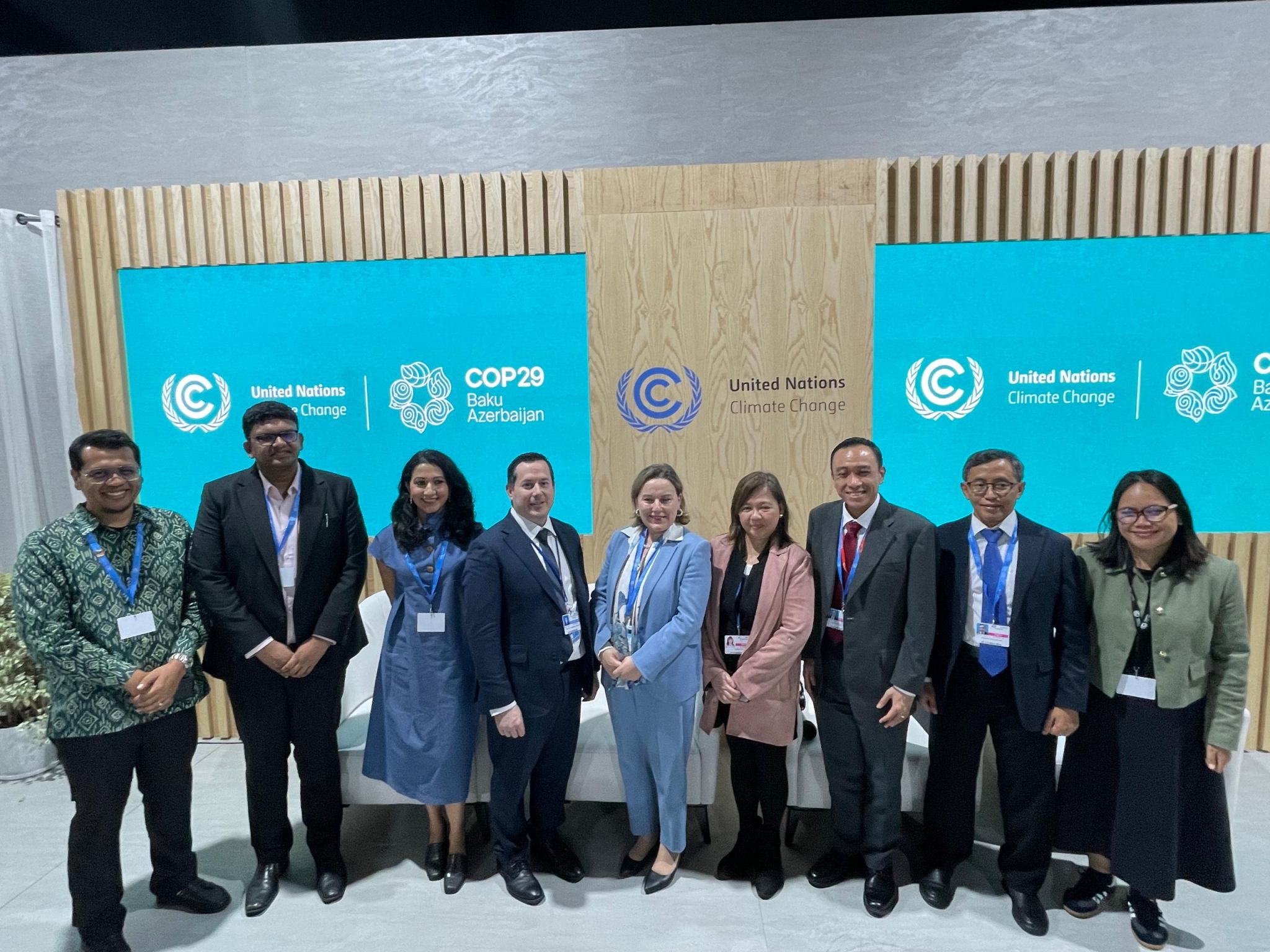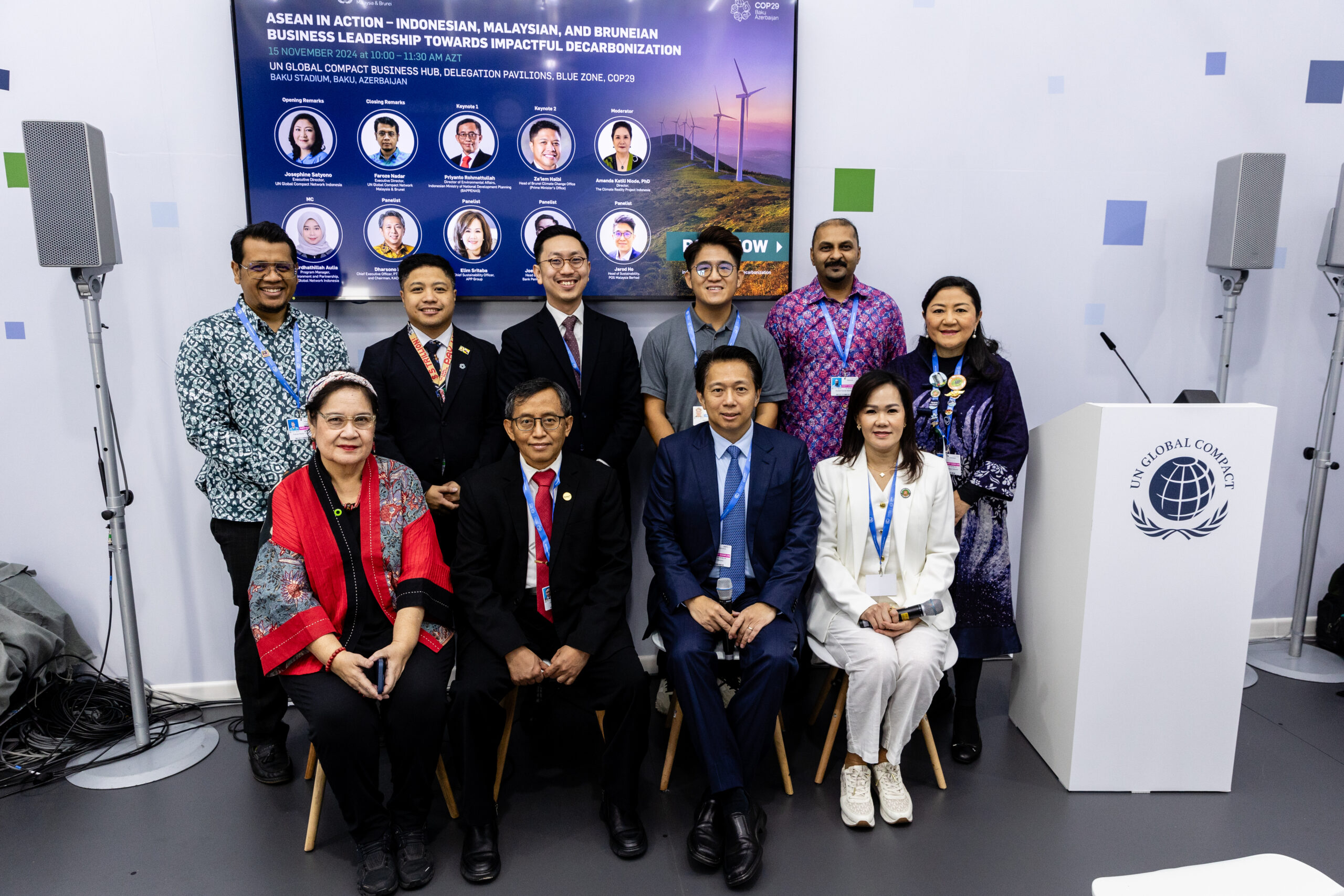Jakarta, 29 August 2018 – Indonesia Business Coalition for Women Empowerment (IBCWE), Indonesia Global Compact Network (IGCN), and UN Women launched a new study on the application of the Women’s Empowerment Principles (WEPs), a set of 7 principles to help companies bolster gender equality and the empowerment of women in the workplace, marketplace and community. The study provides a snapshot of the initiatives being implemented to empower women in the top 50 companies in Indonesia across the WEPs categories: corporate leadership; human rights and nondiscrimination; health and safety; education and training; enterprise development; community leadership and engagement; and transparency, measuring and reporting.
Sabine Machl, UN Women Representative said “Investing in women is not only the right thing to do but also a smart move for businesses and the economy.” She added, “Achieving gender equality in the workplace is still a challenge. The Women’s Empowerment Principles identify gaps and opportunities to tackle inequality, they drive inclusion and empowerment. Through this study we hope to motivate companies to undertake concrete action and more commitments to join forces in driving gender equality in the workplace, marketplace and community.”
In the marketplace, there is a lack of awareness of the importance of the women’s empowerment in enterprise development, supply chain, and marketing. Only 22% of the participating companies conduct assessments on the differential impacts of their products or services on women and men when developing products and/or services. In the community, some participating companies have not yet considered gender as a significant factor when developing community engagement programmes.
“Empowering women in business should not be seen as an obligation, but how the business can make it as a part of strategy that support business within their core and value chain. Empowered women are believed to bring more benefit to the business. Data shows that companies with the most women managers turn a 34% higher profit. A research from McKinsey in 2014 also highlights the fact that companies with more women in senior management functions score higher in all dimensions of organizational effectiveness. However, very few have actually defined strategies to engage and empower women in their value chain. To guide companies on how to empower women in the workplace, marketplace and community, a collaboration between UN Women and UN Global Compact have resulted in the development of the Women’s Empowerment Principles,“ Said Josephine Satyono, IGCN Executive Director.
The study’s analysis highlighted the importance of continuously raising the issue of women’s empowerment to maintain awareness in the long-term, as well as suggesting concrete actions to improve gender equality. Among the recommendations are: identify the different challenges, needs and interests of female and male employees; discuss these needs with the employees and initiate the measures to address them; and develop internal campaigns and/or programmes to support gender equality and prevent gender bias in the workplace, marketplace and community.
Anika Faisal, Chairperson of Supervisory Board of IBCWE said “The issue of women’s economic empowerment has been the concern of various parties including the Government of Indonesia. Appropriately, the private sector also takes a role to contribute to women’s empowerment. This is where the role of IBCWE is, being a strategic partner for companies in Indonesia, so that women’s economic empowerment can run according to the conditions of each company which will ultimately increase women’s contribution to the economy.”
Through this launching too, Dr. A. Prasetyanoko, Rector of Atma Jaya University explains that Atma Jaya is fully supporting Women Empowerment program as it has its own, where the main program is to empower micro-entreprises owned by women in Jakarta. This program has been running since 2017 and 1000 women have trained to have skills in advancing their business.
This report aims to help companies and organizations working to promote gender equality and women’s empowerment to gain a clear understanding on the state of women’s empowerment in the workplace, marketplace and community. In addition, the report helps to raise awareness of the WEPs and how they can provide guidance to help companies integrating gender perspective into their programme, policies and reporting.





